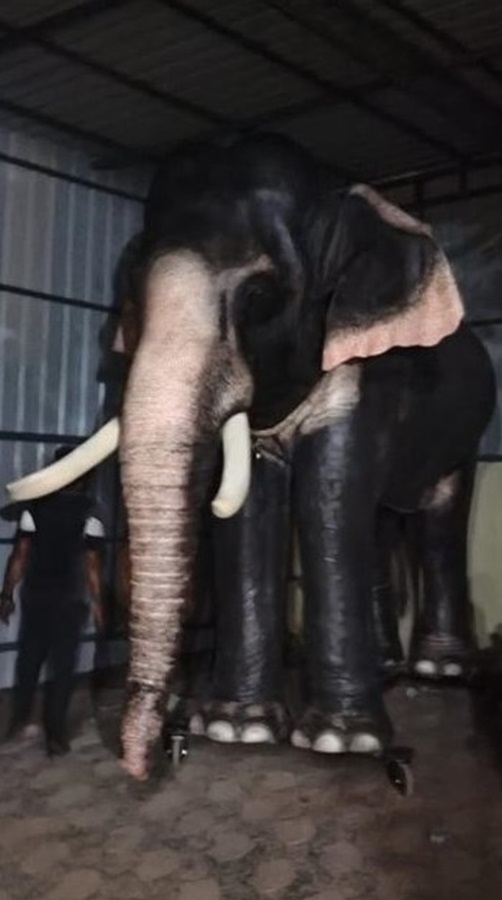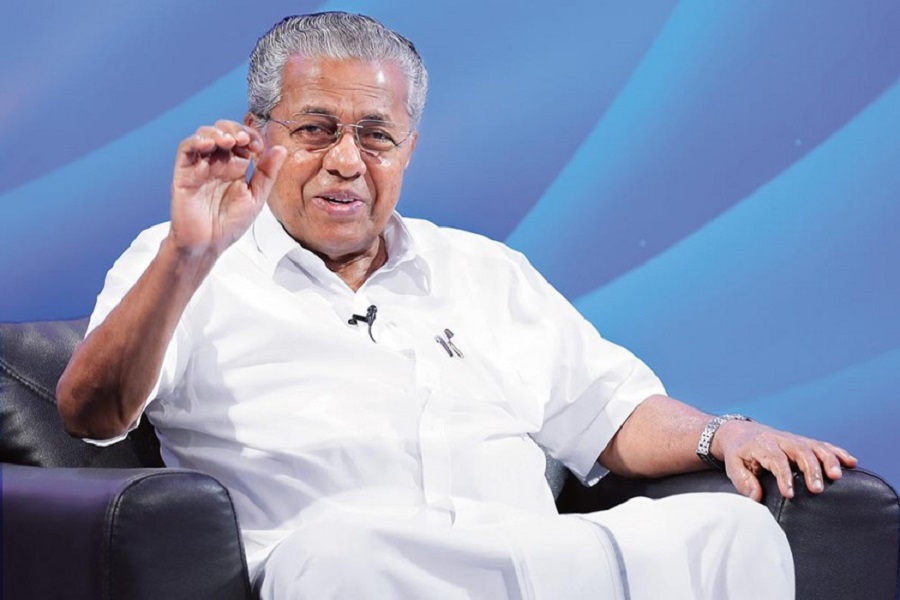
KOCHI:
Voices for Asian Elephants, (VFAE) announced the launch of a robotic elephant in a temple, in its efforts to end the elephant suffering. One of the key aims is to foster ethical practices during temple festivities, while preserving India’s rich culture and traditions. As part of the sprawling robotic elephant initiative, the pilot project was commenced at a Malayali Temple, Sree Sankaran Kovil, located on the Kerala-Tamil Nadu border in Gudalur, Nilgiris by offering the temple a life-size robotic elephant.
The initiative marks the start of a pioneering effort to shed light on the alarming rate at which elephants are perishing, with an average of 25 captive elephants and numerous mahouts dying every year. The year 2023 alone has seen a whopping 293 cases of stampedes caused by elephants running amok, resulting in the deaths of four mahouts and injuries to 26 others, and posing a serious safety and security threat to the public. In 2024, over 15 incidents of elephants running amok have already been recorded, with eight mahouts having sustained injuries in 15 separate incidents.
According to reports the population of captive elephants has dropped from approximately 500 in 2019 to 397 as of the current date, with three fatalities occurring in January 2024 alone. This represents a significant decrease in the captive elephant population within just four years. The average annual death rate stands at 25 elephants per year.
The robotic elephants, created to appear lifelike, present a humane alternative that not only alleviates the suffering of elephants but also mitigates the risks faced by their caretakers. As part of the initiative, Voices for Asian Elephants is committed to expanding the use of robotic elephants in various Kerala temples. Many temples are also acknowledging that using live elephants is not conducive to the well-being of these majestic creatures.
“The introduction of robotic elephants provides an alternative that allows us to preserve our rich culture without harming them. We respect India’s ancient traditions and sacred tenets, grounded in ahimsa that guides us to stop abusing and torturing not only the elephants, but also all sentient beings. Considering the scientific knowledge available on elephants that highlights their remarkable intelligence, social nature, and ecological significance, it is evident that they thrive best in the wild alongside their herds, rather than in captivity. It is crucial that we embrace a path that reveres and protects these sacred animals from unnecessary suffering,” said Sangita Iyer, the Founding Executive Director of Voices for Asian Elephants.
Sangita Iyer is the producer and director of the multiple award-winning and United Nations nominated epic documentary , Gods in Shackles, exposing for the first time ever the plight of festival elephants who are exploited and abused for profit in the name of culture and religion.
In addition to implementing ways to gradually end elephant captivity, the organization is also implementing strategic solutions to protect the endangered wild Asian elephants and mitigating human elephant conflict.
Notably, the organization has recently acquired a 4.00-acre private plantation land in the South Nilambur Forest, which will continue to expand, so elephant habitats can be restored and secured for approximately 340 elephants in the region. This initiative complements their ongoing efforts in West Bengal and Odisha, including the installation of ‘EleSense’ technology that has averted more than 600 elephant fatalities on train tracks. The elephant-friendly solar fencing in West Bengal villages has also resulted in zero elephant deaths in these areas. As part of their broader mission, VFAE continues to empower communities living on forest fringes by providing them with basic necessities, addressing human-elephant conflict and fostering a peaceful coexistence.
Voices for Asian Elephants remains dedicated to expanding their projects widely across elephant range states in India, with a special focus on Kerala, creating a positive impact on the captive and wild elephant welfare, and long term conservation.



